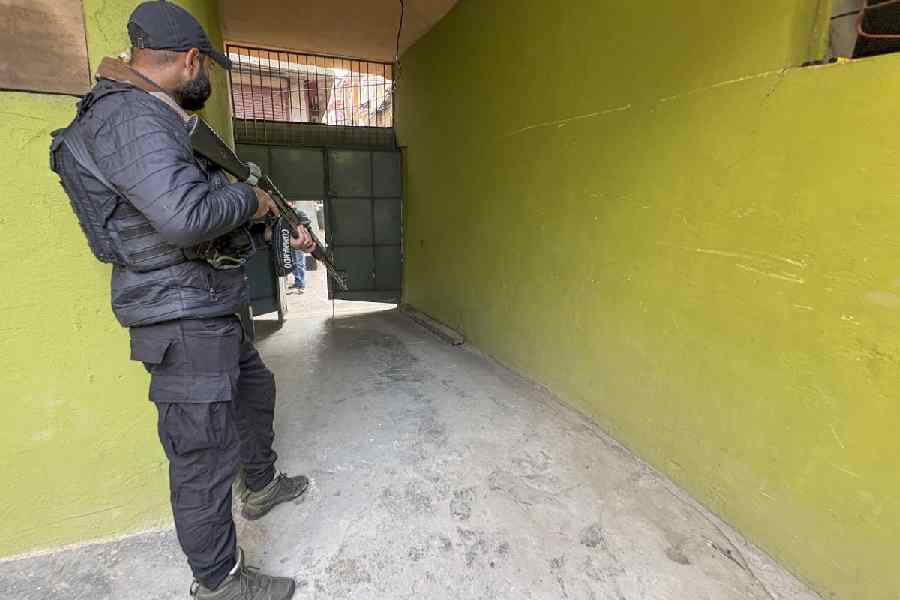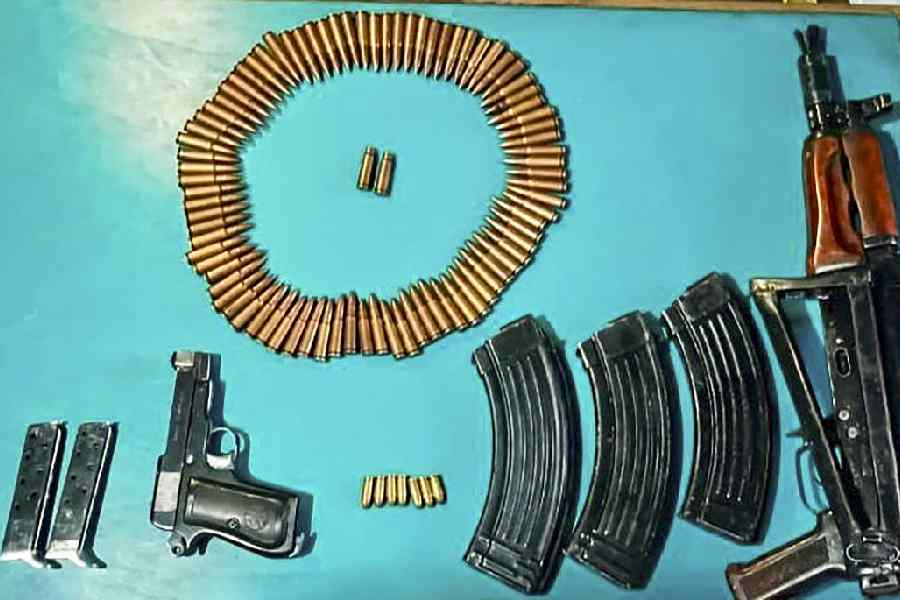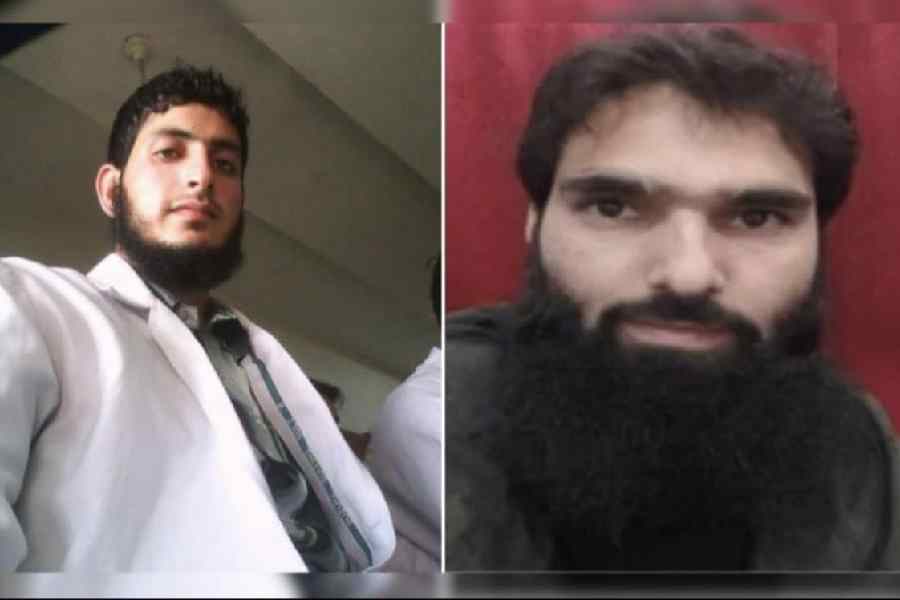A “white-collar” terror module has been busted with two Kashmiri doctors arrested in Haryana and Uttar Pradesh apart from five suspects in the Valley, the fortnight-long operation raking in “3,000kg of bomb-making material” and a cache of assault weapons, security agencies claimed on Monday.
Some 360kg of suspected ammonium nitrate — enough to blow up or damage buildings in a 50-metre radius, officers said — was seized from the rented house of Dr Muzammil Ahmad Ganai in Faridabad city of Haryana on Sunday, sources said. Faridabad is only 50km from Delhi.
A routine investigation into the appearance of posters in Srinagar backing Pakistani terror group Jaish-e-Mohammad had resulted in the unearthing of the “interstate and transnational terror module”, sources said. They linked the module to Jaish and the al Qaida-affiliated, “indigenous” Ansar Ghazwat-ul Hind.
The poster probe had led Jammu and Kashmir police 10 days ago to Muzammil, a native of Pulwama and a member of the medical faculty at Al Falah University in Dhauj, Faridabad.
Following his interrogation, the agencies arrested a second doctor — Adeel Ahmad Rather, a native of Kulgam — who was working at a private hospital in Saharanpur, Uttar Pradesh.

Security personnel stand guard following the arrest of Dr. Adeel (a resident of Wanpora, Kulgam), accused in an interstate and transnational terror module, in Anantnag, Monday, Nov. 10, 2025.
An Intelligence Bureau (IB) official said the probe had “revealed a white-collar terror ecosystem, involving radicalised professionals and students in contact with foreign handlers operating from Pakistan and other countries”.
“The group has been using encrypted channels for indoctrination, coordination, fund movement and logistics. Funds were raised through professional and academic networks under the guise of social/ charitable activity,” he added, declining to provide details.
A rifle and some ammunition were found inside a Swift belonging to a female doctor from the Al-Falah Medical College.
“We have not taken action against her yet: it’s possible that the accused had borrowed her vehicle. But her role remains under investigation,” a Haryana police officer said.
The counter-terror operation was carried out by the Jammu and Kashmir police in coordination with the IB and the police forces of Haryana and Uttar Pradesh over the past 15 days.
On Sunday, the police took Muzammil to his flat and seized, apart from the suspected ammonium nitrate, “a huge cache of arms and ammunition”, Faridabad police commissioner Satender Kumar Gupta said.
The haul included an assault rifle with three magazines, 83 live cartridges, a pistol with eight live rounds, two empty cartridges, two additional magazines, 14 suitcases, 20 timers, four batteries, remotes, 5kg of heavy metal, and a walkie-talkie set.
“The intelligence agencies are probing the network’s funding sources and possible connections withhandlers across the border,” Gupta said.
Multiple agencies, including the National Investigation Agency, have joined the probe.
The Al Falah University at Dhauj, about 45km from Delhi, is a private institution recognised by the University Grants Commission.
“Muzammil, a teacher at Al Falah Medical College, had rented the house in Dhauj about three months ago,” a police officer said.
After his arrest, “several police teams rushed to Saharanpur and arrested Rather”, the IB official said.
“On the basis of information provided by him, we recovered an AK rifle from a locker at the Government Medical College in Anantnag, Kashmir.”
Rather had been a senior resident at GMC Anantnag last year before leaving to join the Saharanpur hospital.
Officers said the other five suspects arrested in the Valley too were “white-collar” operatives but gave no details.
During the investigations that began in late October, searches were conducted at multiple locations in Srinagar, Anantnag, Ganderbal and Shopian in Kashmir, apart from the Faridabad and Saharanpur raids.
“Till now, the police have recovered a Chinese Star pistol, a Beretta pistol, an AK-56 rifle, an AK Krinkov rifle, and 3,000kg of bomb-making materials, including explosives, reagents, inflammable material, electronic circuits, batteries, wires, remote-control mechanisms, timers, metal sheets, and so on,” the IB official said.











